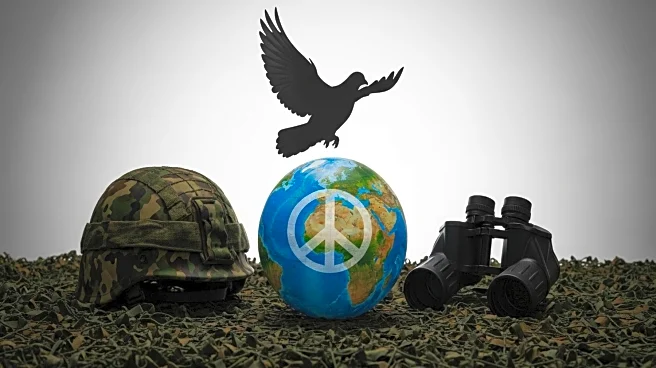What's Happening?
The United States has been ranked 128th on the Global Peace Index for 2025, a position that reflects its high level of militarization. The index, produced by the Institute for Economics & Peace, evaluates 163 countries based on societal safety, security, ongoing conflicts, and militarization. Iceland has been named the most peaceful country, maintaining its top position since 2008. The report highlights a global increase in violent conflicts, with 59 state-based conflicts recorded in 2023, the highest since World War II. Russia and Ukraine are ranked as the least peaceful countries, with Russia taking the bottom spot for the first time.
Why It's Important?
The low ranking of the United States on the Global Peace Index underscores the country's significant militarization, which impacts its international standing and domestic policies. This ranking may influence public opinion and policy discussions regarding military spending and international relations. The report's findings highlight the broader global trend of increasing conflicts, which could affect international diplomacy and economic stability. Countries with higher peace rankings, like Iceland, often experience better GDP growth and societal well-being, suggesting potential benefits for nations that prioritize peaceful policies.
What's Next?
The United States may face pressure to reassess its military policies and spending in light of its low peace ranking. This could lead to debates among policymakers and the public about the balance between national security and peacefulness. Internationally, the widening gap between peaceful and conflict-ridden countries may prompt discussions on global peace initiatives and conflict resolution strategies. The report's emphasis on Positive Peace could inspire countries to adopt policies that foster societal well-being and resilience.
Beyond the Headlines
The Global Peace Index's findings may have ethical implications, as they challenge nations to consider the human cost of militarization and conflict. The report suggests that peaceful societies benefit from higher economic growth and societal well-being, raising questions about the long-term sustainability of militarized policies. Additionally, the index may influence cultural perceptions of peace and security, encouraging a shift towards more peaceful international relations.










